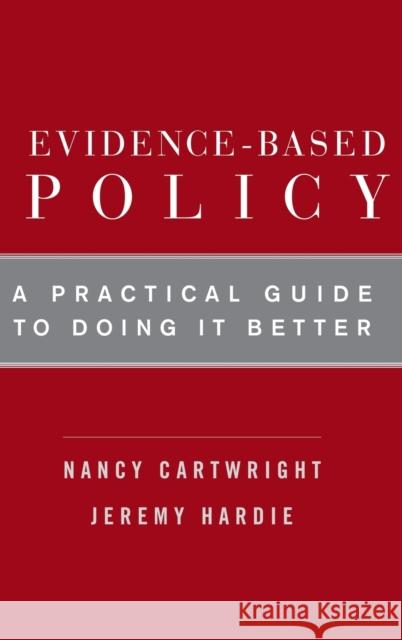Evidence-Based Policy » książka
Evidence-Based Policy
ISBN-13: 9780199841608 / Angielski / Twarda / 2018 / 210 str.
Over the last twenty or so years, it has become standard to require policy makers to base their recommendations on evidence. That is now uncontroversial to the point of triviality--of course, policy should be based on the facts. But are the methods that policy makers rely on to gather and analyze evidence the right ones? In Evidence-Based Policy, Nancy Cartwright, an eminent scholar, and Jeremy Hardie, who has had a long and successful career in both business and the economy, explain that the dominant methods which are in use now--broadly speaking, methods that imitate standard practices in medicine like randomized control trials--do not work. They fail, Cartwright and Hardie contend, because they do not enhance our ability to predict if policies will be effective.
The prevailing methods fall short not just because social science, which operates within the domain of real-world politics and deals with people, differs so much from the natural science milieu of the lab. Rather, there are principled reasons why the advice for crafting and implementing policy now on offer will lead to bad results. Current guides in use tend to rank scientific methods according to the degree of trustworthiness of the evidence they produce. That is valuable in certain respects, but such approaches offer little advice about how to think about putting such evidence to use. Evidence-Based Policy focuses on showing policymakers how to effectively use evidence, explaining what types of information are most necessary for making reliable policy, and offers lessons on how to organize that information.










